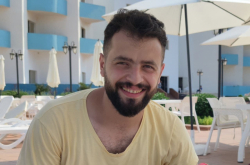We use the term “team” rather loosely these days. But what makes a real team?
For 45 years I’ve been a mountaineer, but besides that, I worked in atomic science for eight years, and then launched major projects in the field of education. I became the rector of the Skolkovo Moscow School of Management and the scientific supervisor of the Priority 2030 national program. Now I work at the Social Strategies Institute at Skolkovo.
You might ask, what does it have to do with climbing mountains? You naturally realize that when climbing a mountain, people are highly dependent upon each other and they interact differently than in daily life. We can rightfully call this type of interaction a team, not a working group, a family, a tribe, or anything else.
These days, it’s common to use the term “team” almost colloquially, even in business – although it wasn’t a tendency just 20 years ago. It used to only refer to sports teams. Of course, it’s much more pleasant to say “I am a member of a team,” instead of saying “I am a member of the working group.” But how are these two terms actually different? When do we need a team? And what is it’s main value?
We live our lives in different structures: families, colleagues, research schools – they are called differently because they are needed for different tasks. When people hear the word “team,” they say “Trust is important in a team.” Next, they mention other psychological aspects. However, we can look at a team differently – thinking about its actions, an approach that is much closer to my heart. This way, we consider this phenomenon in terms of a team’s goals and thinking processes that bring it to the result. A team is primarily defined by their project’s idea. It’s not about motives or feelings; these are important, too, but the action-based approach is about different things.
As an action-oriented and not a psychological structure, a team is defined by the idea seen as a project. This means you have defined its goals, resources, means, as well as a clear result.

Andrey Volkov's lecture. Photo by Pavel Arseev / Megabyte Media
When we need teams (and why they aren't always necessary?)
For new tasks. The only time we need a team is when we are trying to do something we don’t know how to do. If people know how to perform their routine tasks and can do them without thinking, they typically don’t need a team for this. They can just be a working group.
For example, I am a head of an institute at Skolkovo: I develop a curriculum, attract funds, and implement programs with my colleagues. These are our routine activities. However, if Skolkovo were to change its focus and strategy, we would need a different class of communications, reflections of our actions, and a clear idea and goals – these all define a team.
What makes a team
I believe, apart from a project’s idea, a team is defined by two crucial features:
Ability to understand each other during communication. Communication is another word used too often nowadays, but I mean it in a more narrow sense: communication that includes true understanding. Usually, we don’t need to understand each other. What we mean when we say we “understand” is that we recognize it.
As put by a friend of mine, communication is overcoming your disgust towards the opinion of your interlocutor. If you disagree with someone, the easiest way is to just escape out of this communication. No one wants to get into the meaning behind their interlocutor’s words and why they say what they say. But if we want to make a team – we have to get into all of it.
Coming back to mountain climbing, here’s an analogy. If you want to reach the summit over 7,000 meters high, you need to think over quite a few issues: you have to plan your route and acclimatization, and pack all the necessary supplies to not only survive but be very physically active in the harsh conditions of oxygen deprivation and dehydration. There are always dozens of independent factors and conditions to take into account, but at the core of it all is a group of people, a team that has to regularly discuss their route and make decisions. If you fail to understand each other, this can be fatal.

Andrey Volkov's lecture. Photo by Pavel Arseev / Megabyte Media
Reflections of your actions. For a team to work, it’s crucial to conduct a reflection of the way we act in a situation, the way we implement our ideas, and the methods we use.
At 18, I went to a mountaineer camp in the Caucasus Mountains, where I climbed my first summit in a group; back then I didn’t know anything about this kind of analysis. I was surprised when our instructor assembled us after the climb and asked us to recount in detail what we did and how we evaluated our results. This procedure was repeated after every summit: all of the team’s actions were analyzed and captured on paper. This is called reflection that helps not only avoid mistakes but also accumulate experience.
What happens to a team once they complete their project?
If teams are assembled only to create something new, then what happens once they’ve reached their goal?
It doesn’t sound pretty, but teams are single-use only. Once a team’s goal is reached, it “dies.” But, you might say, they continue working. Yes, of course. And any team in the sense that we’ve defined here has to gradually transform into a normally functioning working group that keeps on doing well-known routine tasks.
Once a project is complete, we have new knowledge and action patterns that become our new norms. They keep on living in the working group and, if written down and classified, can be shared with other generations – for instance, at universities.

Andrey Volkov's lecture. Photo by Pavel Arseev / Megabyte Media
Andrey Volkov was the first rector of the Skolkovo Moscow School of Management and one of the people behind the school’s idea; now he heads the Social Strategies Institute at Skolkovo and acts as a scientific supervisor of the Project 5-100 and Priority 2030 national program. Andrey Volkov is also a world-class athlete in mountaineering, a Snow Leopard (a title given to mountain climbers who summited five USSR peaks over 7,000 meters), who has been to the summit of Everest. In June 2024, Andrey Volkov gave a talk at ITMO’s PI School for young researchers who aspire to lead scientific teams. This year, the participants learned how to define their career trajectory for a decade ahead, advance their skills based on current trends in science and business, and tried to predict the changes in technologies in the coming decades.





